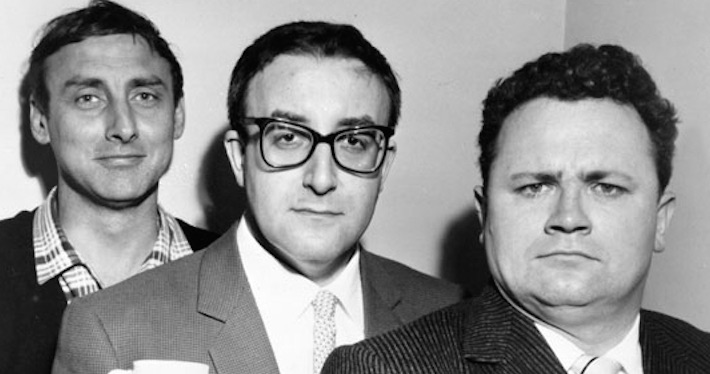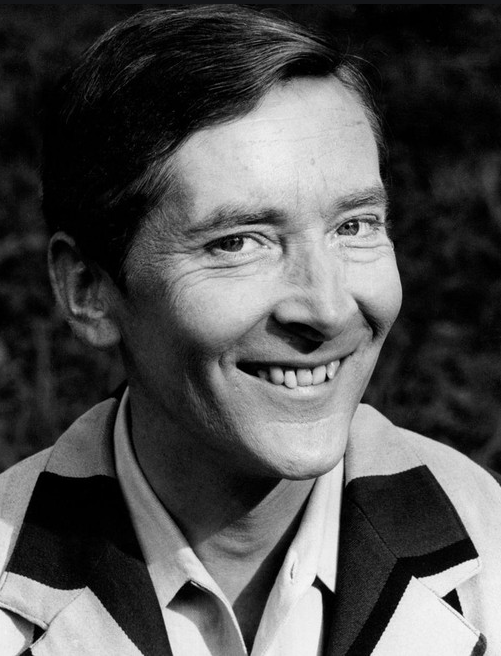
You have a lot of time on your hands as an only child and one thing I used to do was pull faces in the mirror to see how unlike me I could look. Another thing was to experiment with noises, sometimes using my lips and fingers, more usually just vocalising without equipment. Again, the goal was to create sounds that didn’t sound human. I never thought of it like that, of course. Just trying out shapes and sizes and pushing air through cavities, sometimes trapping it and squeezing it along with tongue clicks and tongue rolls and various vibrations. You see kids do this sort of thing in the street or in the classroom – you can’t tell if they’re only children or not – why would they be? Maybe they had competitions with their siblings. Maybe they even tried unhuman choral effects.
It may dawn upon the young vocal experimentalist with time on their hands that although foreign languages feature noises that are simply not present in the English language, these noises can be imitated and may have a generative effect on the youngster’s private work to the extent of introducing not just variants but invasive species. (It should, of course, be acknowledged that the learning of foreign languages involves precisely such exercises. It is arguable that if only a few ‘foreign’ sounds can be competently imitated then other unfamiliar sounds within that language will be more readily reproduced. As in ‘Good – you can get your tongue round that, now try this…’)
I think I have a reasonably serviceable French accent and I attribute this to being made to intone, along with my classmates, a series of French vowel sounds over and over at school, at least three times a week. Several of these sounds were weird and on each occasion some rogue class members were lured away from the exercise at hand in order to push these novel sounds further than required by the French language as conventionally constituted. To our East Anglian ears the proximity of these sounds to those of the farmyard and field was a gap eagerly to be closed. The squealing pig was the most sought after candidate and our teacher, obliged to remonstrate in French, as was already the progressive foreign language teaching protocol in the 50s, would attempt to re-herd the room with exasperated demands for ‘Votre attention, les élèves!’
Schoolboys would have derived some encouragement for their abuse of the spoken word from postwar radio comedies that were richly populated by actors with distinctive voices or the ability to maintain distinctive voices that were not their own. Sid James, for example, stuck with his lecherous Cockney growl throughout his career, despite having been born in South Africa, while Jimmy Edwards presented bombastic variations on a voice that drew on his experiences as a choral scholar who subsequently became an RAF flight lieutenant in WWII. June Whitfield was a versatile actor adept at comic voice work who ranged from Eth of The Glums in Take It From Here to the fuller sitcom role of Edina’s mother in Absolutely Fabulous. Irene Handl specialised in a remarkable, slightly frail, lightly grumbly yet cheery working class barmaid or charlady persona whose voice was so eccentric that it won her small parts in over 130 films and countless TV series.
 Although very much a signed up member of the 50s funny radio voice community, Kenneth Williams stands out insofar as his vocalisations moved beyond the parameters of sketch and sitcom scripts and seemed to strike out for shores at that point undefined. Williams found some possibilities for the ventilation of his concealed gayness in pushing what was, in the 50s and 60s, a standard camp drawl way beyond the limits established by other intrepid comic actors who had been given ‘tolerable because amusing pansy’ roles.
Although very much a signed up member of the 50s funny radio voice community, Kenneth Williams stands out insofar as his vocalisations moved beyond the parameters of sketch and sitcom scripts and seemed to strike out for shores at that point undefined. Williams found some possibilities for the ventilation of his concealed gayness in pushing what was, in the 50s and 60s, a standard camp drawl way beyond the limits established by other intrepid comic actors who had been given ‘tolerable because amusing pansy’ roles.
Williams responded to his scripts as if merely to analyse them sentence by sentence was a dereliction of duty. His view appeared to be that every single word was worthy of assault and if that meant respecting the meaning of the lines within the context of their location in fictional situations then so be it – it was a price worth paying and he had the acting skills to deliver what was required.
These line readings could, however, if one so wished, be lifted out of their radio sketch setting, stripped of their function within these frameworks and regarded as remarkable and unhinged exercises in a proposal for the almost human, the humanoid or the post-human – the latter in the sense that if a person could speak but had no world in which to express this ability then his vocalisations would still command respect and inspire awe in all those who came upon them from deep and outer space.
Williams’ voice would swoop, purr, croak, elasticate, shudder, nasalise, whinge, slide, climb, yowl, thunder and groan as he saw fit. Were there proper criteria for such achievements then he would certainly have been honoured with the creation of an annual Award – the Kenneth, perhaps – for outstanding contributions to the development of non-musical vocalisation in the service of higher post-syllabic communication.
It was in the mid 50s that my schoolmates and I became aware of The Goon Show, a radio comedy series that had been broadcasting on the BBC Home Service since 1951. This was a show without peer. It seemed to have no precedent at all. Other radio comedy programmes were amiable, intermittently a bit risqué, delivering a continuity, comfort and relief that recuperating post-war audiences deserved. They were not, however, fevered, free-form, comprehensively illogical or scrambled to the point of unrelieved delirium. The Goon Show was all of these and evinced a programmatic indifference to the conventions of ‘the programme’. In its eruptiveness and disorder it was a frenetic barrage that had some of the texture of war. In this respect it marked an early departure from the measured caution of a traumatised public withdrawing from years of dread and, in many cases, injury and bereavement. Among that public were younger listeners – perhaps in their late teens and early twenties – who had not seen military service and were ready for less cosy entertainments.
 All of which is to say that if comic actors of the time who were blessed with voices and vocal effects of distinction had been exposed, in the early 50s, to writers and producers responding to early indications that a ‘post postwar’ sensibility was emerging, then The Goon Show might not have been, for several years, the lone rider in popular radio absurdism. It launched three years before Hancock’s Half Hour, also on Radio 1, set out an alternative to manic excitability with its droll celebration of the melancholy of a failed actor who barely believes in his enduring delusions of grandeur. In 1969, nine years after The Goon Show concluded, Monty Python first aired on TV.
All of which is to say that if comic actors of the time who were blessed with voices and vocal effects of distinction had been exposed, in the early 50s, to writers and producers responding to early indications that a ‘post postwar’ sensibility was emerging, then The Goon Show might not have been, for several years, the lone rider in popular radio absurdism. It launched three years before Hancock’s Half Hour, also on Radio 1, set out an alternative to manic excitability with its droll celebration of the melancholy of a failed actor who barely believes in his enduring delusions of grandeur. In 1969, nine years after The Goon Show concluded, Monty Python first aired on TV.
The baton passed from the Goons had not immediately been seized but for those born in the early 50s, to be 15 years old or more in the Python era was to be ushered into an exhilarating expression of demented sketchwork that appealed especially to drugged youth and those who had enjoyed the cultural fruits of the final release from the PTSD caution of their parents that had characterised the 60s.
Where Williams had paved the way for what The Goon Show had to offer as far as decomposed speech went, he had also demonstrated what a visionary voice artist could achieve within sitcom scripts. The writer of the Goon scripts, Spike Milligan, clearly felt that there was no pressing reason to establish a recognisable bedrock sitcom reality – as obtained in Hancock’s Half Hour, for example – for comic actors to pitch up against. In radio you cannot see the walls. The imagination is relieved of any debt to theatre or the novel.
In the bike sheds of the mid 50s animated discussions of and noisy quotations from The Goons almost eclipsed the usual thrilling and outrageously folkloric lectures and debates on questions arising from an overheated fixation on female anatomy. School was tight back then and while The Goons was intermittently saucy it was the utter abandonment of plausible narrative in the shows that was revelatory and, for many, life changing. The war was ten years over and had been profoundly traumatising for all concerned but it had also provoked in some the view that the centre had just about held but mere anarchy was well overdue.
There are countless examples of coherent comedic incoherence to be found that are indebted, whether knowingly or not, to the epoch-making collaboration between writer Spike Milligan’s at times clinically marked mania, Peter Sellers’ mastery of so many funny voices that he once confessed, in all seriousness, that he could no longer remember what his normal voice was like, and Harry Secombe’s booming, screeching parodies of the straight (as in not mad) man to whom preposterous things Will Always Happen.
One magnificent vocalisation not usually found in the standard funny voice genealogies is actor Edward Tudor-Pole’s (aka Tenpole Tudor) contribution to Julien Temple’s The Great Rock’n’Roll Swindle (1980). Tenpole has doubtless been accused of wantonly mangling the lyrics and delivery of ‘Who Killed Bambi?’ but this would have been the not inaccurate view of people who know nothing.





